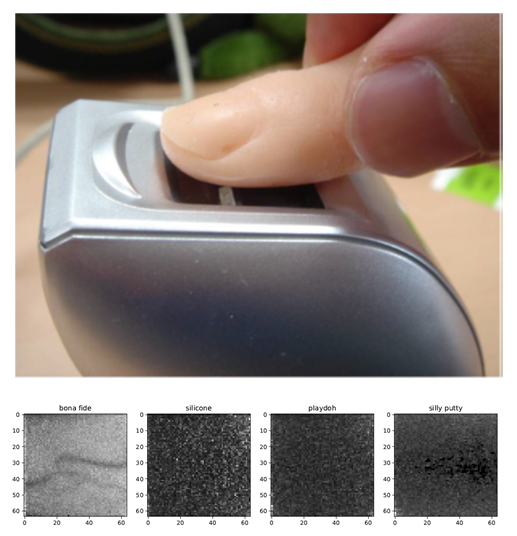Pascal Keilbach defended his Master Thesis on Fingerprint Presentation Attack Detection using Laser Speckle Contrast Imaging

Fingerprint recognition systems are being increasingly deployed in various applications in the public and private sector. As any biometric system, they are vulnerable to attacks with fake biometric characteristics, called presentation attacks (PAs). In particular, such attacks pose a severe threat since no further knowledge about the system itself is required. In order to prevent these attacks, liveness features can be utilized to develop presentation attack detection (PAD) methods. For this purpose, laser speckle contrast imaging (LSCI), a common method for blood flow monitoring in biomedical applications, can be used to conclude blood flow – the definite feature of liveness. This work presents a new PAD approach for fingerprints based on LSCI. For the purpose of liveness detection, LSCI provides grayscale and texture information, which is extracted by using the grayscale histogram, LBP, HOG and BSIF. Subsequently, a Support Vector Machines and a threshold comparison are used for classification. In the experiments conducted on a database comprising 771 samples, including 32 different types of PAs, the results show that the proposed approach classifies correctly all bona fide samples. However, the LSCI technology experiences difficulties with thin and transparent overlay attacks.
The results were presented at BIOSIG 2018.
